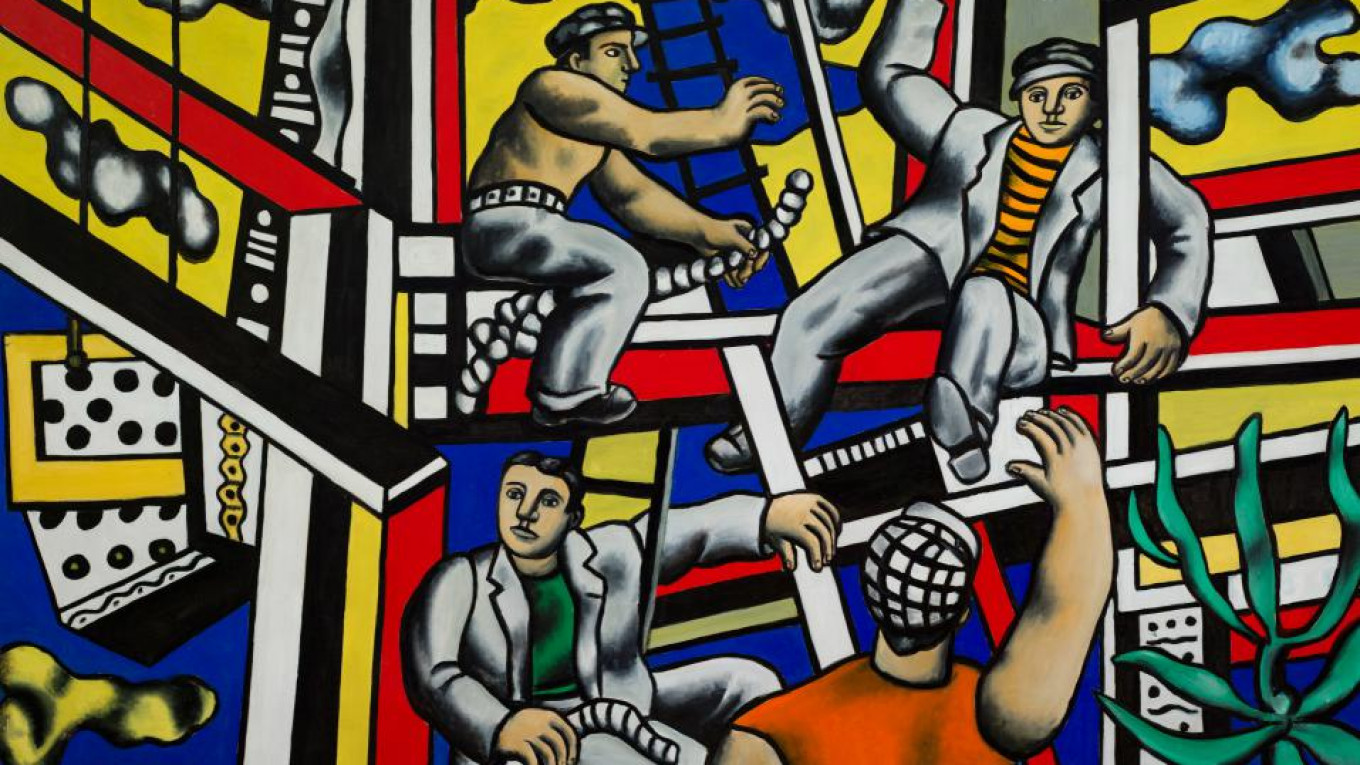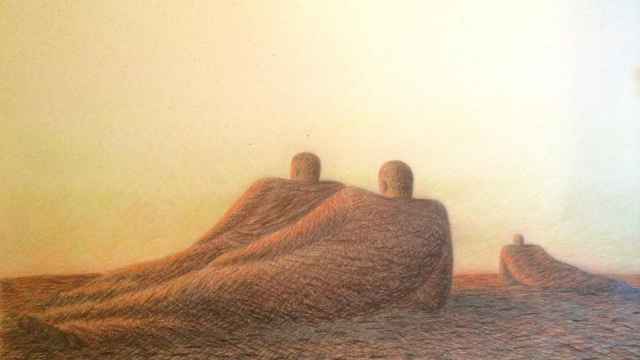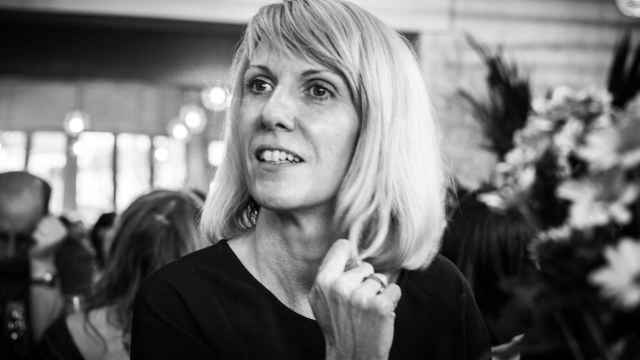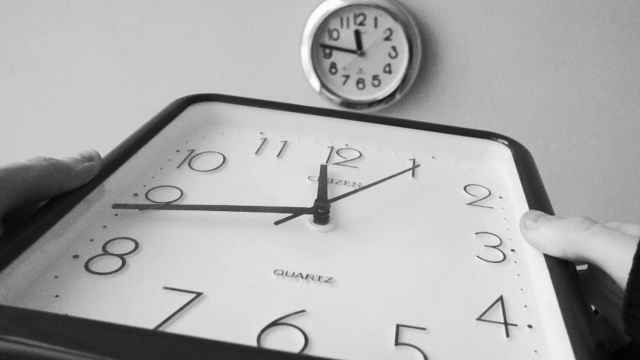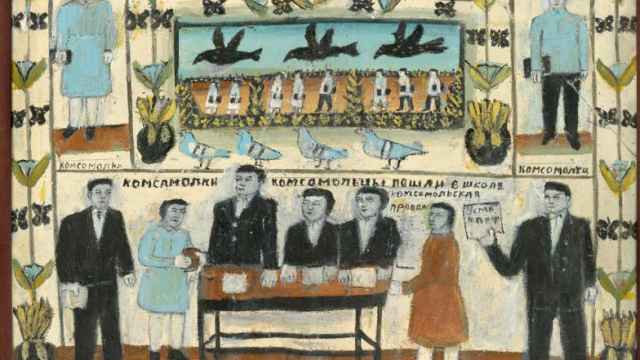This week the Pushkin State Museum of Fine Arts opened its long-awaited exhibition “Facing the Future: Art in Europe 1945–1968” in collaboration with the BOZAR Centre for Fine Arts (Brussels), the ZKM Center for Art and Media Karlsruhe in Germany, and Moscow’s ROSIZO State Museum and Exhibition Center.
Masterpieces by Western European greats like Marc Chagall, Pablo Picasso, Lucian Freud and Yves Klein are displayed beside works by Soviet artists such as Aleksandr Deyneka, Francisco Infante-Arana and Vadim Sidur.
The Moscow Times spoke to one of the project’s curators, Peter Weibel, Head of the ZKM Center for Art and Media in Karlsruhe, about the exhibition.
How did you get involved in organizing “1945-1968”?
Three years ago I got a phone call from Eckhart Gillen [another one of the curators], who told me he was asked by the Pushkin Museum to make an exhibition about Europe. I immediately said yes — I thought it was a wonderful idea. Neither Moscow nor Karlsruhe is the center of Europe, so I decided to invite BOZAR Centre for Fine Arts from Brussels to become a partner in this project. So we started with Brussels, the bureaucratic heart of Europe, then Germany, and then Russia.
How did the exhibitions in Brussels and Karlsruhe differ from the Moscow one?
Their size differed, the biggest one was in Karlsruhe, while the smallest one was in Brussels. In Moscow, it’s a good mix of both. We also got some works from Poland and the Czech Republic that we couldn’t get for the exhibitions in Brussels and Karlsruhe.
Were there works that couldn’t come to Russia because of political concerns?
We don’t have any works from the American collectors or the museums because of the sanctions. Some collectors or institutions would only agree to loan a painting for the Brussels and Karlsruhe parts of the project, but not for the Moscow one. I would tell them that the work should go to all three exhibitions or none at all.
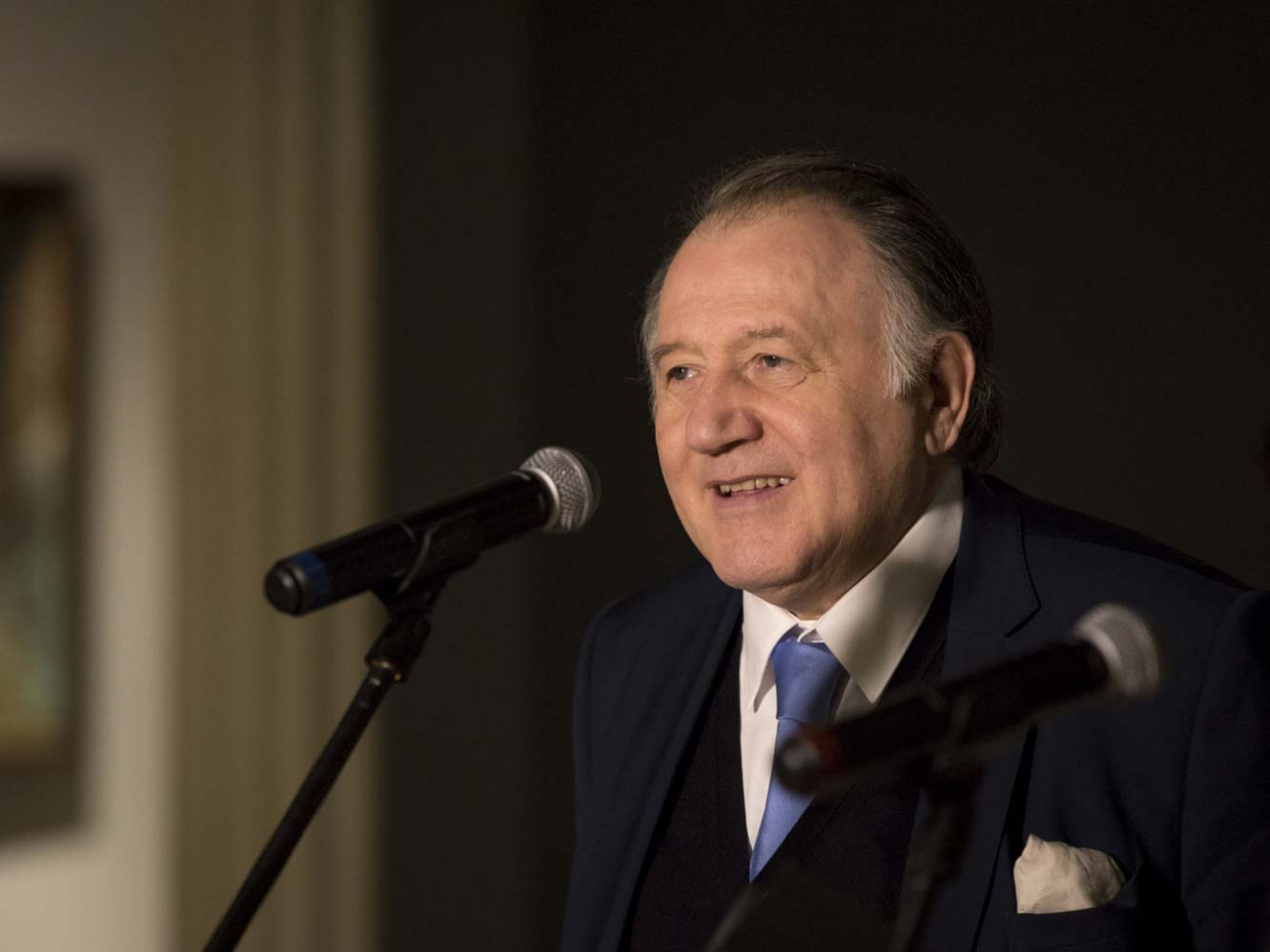
How did you go about selecting particular artists?
First, we determined the movements we were going to represent: kinetic, op-art, etc. Then we discussed who were the most interesting, famous artists, as well as unknown, neglected artists from Eastern Europe. In the West, you have an art market where you can make money and become famous, while in the East there had been no market and therefore no opportunity to become famous. The concept was to mix famous Western artists with not-so-well-known Eastern artists and introduce them to the European public. At ZMK in Karlsruhe, the show even had a subheading: “The Continent that the EU does not know.”
What were the criteria?
Date, whether it fits the period we are looking at, and quality, uniqueness. We did some research, we went to countries like Hungary, Poland, the Czech Republic, and looked in the basements there.
Was the exchange of ideas one sided — from West to East — or did the ideas go both ways?
When you work at the forefront of art and come up with new ideas, others can come up with the same ideas. It’s just like in science, when Leibniz and Newton invented calculus at the same time. The exchange of ideas is only needed for confirmation.
The exhibition at the Pushkin Museum is grouped together with two exhibitions devoted to the same period but focusing on Khrushchev’s Thaw and its impact on art in the USSR. Do you think the term “Thaw” can be applied to European art as well?
We planned this exhibition without knowing
about the other two, so there’s no direct link.
But I believe it’s very important that we start
to rethink historically the idea of European
art. The West believed that it could represent
Europe on its own, without the East. It’s like a
self-amputation, we need Eastern European
intervention.
A Message from The Moscow Times:
Dear readers,
We are facing unprecedented challenges. Russia's Prosecutor General's Office has designated The Moscow Times as an "undesirable" organization, criminalizing our work and putting our staff at risk of prosecution. This follows our earlier unjust labeling as a "foreign agent."
These actions are direct attempts to silence independent journalism in Russia. The authorities claim our work "discredits the decisions of the Russian leadership." We see things differently: we strive to provide accurate, unbiased reporting on Russia.
We, the journalists of The Moscow Times, refuse to be silenced. But to continue our work, we need your help.
Your support, no matter how small, makes a world of difference. If you can, please support us monthly starting from just $2. It's quick to set up, and every contribution makes a significant impact.
By supporting The Moscow Times, you're defending open, independent journalism in the face of repression. Thank you for standing with us.
Remind me later.


